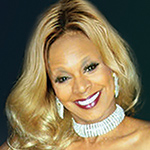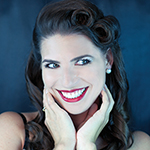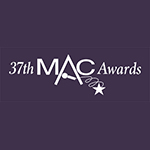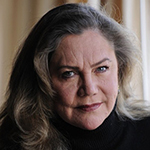A Conversation with Melissa Manchester
November 29, 2019
By Todd Sussman for Cabaret Scenes
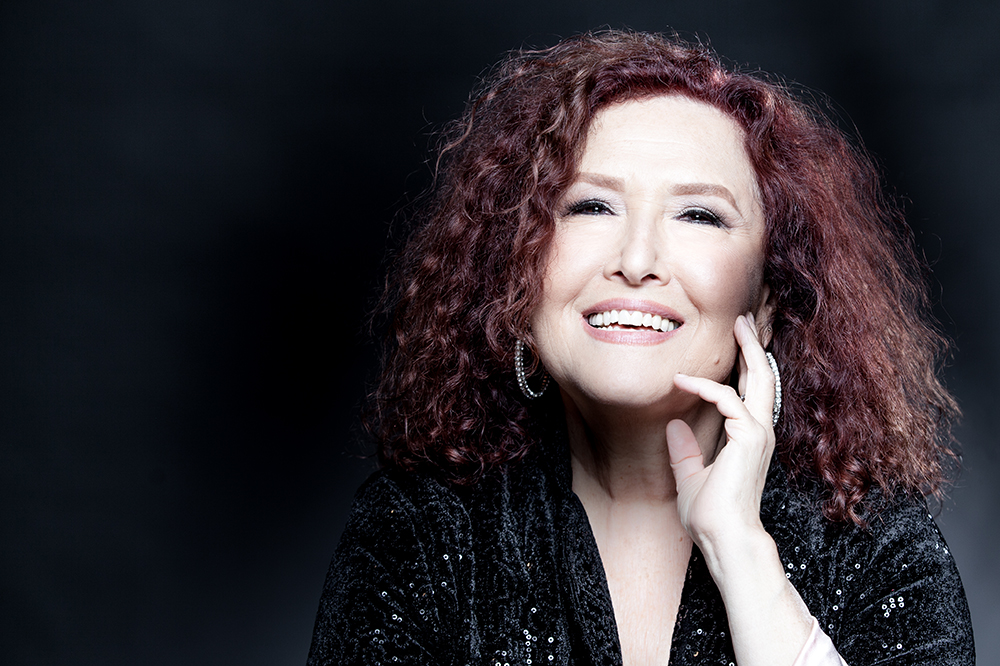
Photo: Lena Ringstad
Sweet Melissa…indeed. As this Grammy-winning artist prepares for a new Christmas tour, she generously shares the stories behind the music that has become the soundtrack of our lives. Whether she’s singing for millions on an Oscar telecast or performing in a much more intimate cabaret setting, her style, her warmth, and that unmistakable voice shine through.
Todd Sussman You sometimes sing in the smaller clubs and cabarets, such as B.B. King Blues Club & Grill (which closed last year) and Feinstein’s/54 Below. What do you like about these more intimate venues?
Melissa Manchester They remind me of where I started and I like the intimacy of being able to see people, to see them, to see their teeth as they’re smiling. That is what is really touching about the cabaret. It’s a throwback to times that hardly exist anymore, and it’s where I started.
Todd In the smaller rooms, you often invite the audience to join you after the show for a meet and greet. It is very appreciated. What do you learn from the fans?
Melissa I have found that when I do a meet and greet after a show—I learned that from my country colleagues; country stars have been doing that for a very long time—I love connecting with people and hearing what my music has meant to them. It’s very, very touching. It’s frequently accompanied by tears and hugs. It is an unexpected gift to me, so that’s why I do it. I do that after concerts as well.
Todd Your latest album, The Fellas—a tribute to the great male vocalists—includes classics that you truly make your own. How do you choose which ones to include in your live set?
Melissa Well, because The Fellas is an album comprised of eight cuts as opposed to 10 cuts, I effectively do all of it on stage when I’m doing my own concert. It’s accompanied by videos of the actual process of recording, and it was so joyful to make it. The Fellas is the completion of an idea that started in 1989 when I recorded an album called Tribute, which was my tribute to several of the great women singers that meant so much to me. I always wanted to make an album of the fellas, and I wasn’t able to do so until much later when I became an independent artist and I had an association with the music department at Citrus College out here in California. They have a spectacular student big band orchestra, and that is who you’re hearing on The Fellas. Many of the kids are 18-years-old. This is not their genre; this is not their milieu, but they understood through their professors this would be part of a large adventure, so you hear their spectacular training and their beautiful playing.
Todd I’m glad you brought up Tribute. I am not a singer, but if I were to produce a tribute album, you would be on the list of singers who made a difference to me.
Melissa That’s very kind. Thank you very much.
Todd Your style, class, and sincerity in conveying a song seem to be a lost art. Do you see it like that with the new music out there?
Melissa You know, styles of music and performance change, and I can only walk my path. My path consists of bringing forward, through my singing and my understanding of song, a fresh interpretation of the classics, while acknowledging the shoulders of the great artists upon whom I stand. I was virtually trained by listening to Ella Fitzgerald and Judy Garland and Sarah Vaughn and Peggy Lee, and all of those great women in that rarified crowd, which also includes Sinatra and Tony Bennett and Nat Cole—the fellas. So I do what I do, and I compose songs that would allow me to do that as well. I also have a great appreciation of the American Songbook that I revered growing up, and that luckily my parents loved as well, and so that music was always in the house. But I must say there are plenty of young people, some of whom I taught this past summer in a master class at Michael Feinstein’s Great American Songbook Foundation—he does a week-long intensive workshop for high school students that love cabaret and that love the American Songbook. I was greatly heartened by their commitment to the Songbook, and boy, they get it. They understand it. They know the artists. They know the history. It was just beautiful.
Todd: May we travel back to the beginning of your career for a moment?
Melissa Sure.
Todd You were one of the original Harlettes for Bette Midler. How did you get that gig, and was that your first taste of being in front of a big audience?
Melissa I was the founding member of the Harlettes. I had met Barry Manilow and sung with him doing jingles. We were both jingle singers. At the time, I was living in Manhattan, where I was raised, and Barry and Bette were playing in a club, sort of across the street from where I frequently played. They were playing at the Continental Bathhouse. Barry brought Bette over to watch my performance at a club, called the Focus, one night. I had just seen her on the Johnny Carson show singing “Sh-boom Sh-boom,” and I was introduced to her after my set, and I asked her what she was getting ready for. I complimented her on her performance. She said, “Well, I’m getting ready to do Carnegie Hall.” And I asked her if she was considering having back-up singers, and she brightened up and said, “I don’t know. Would you like to sing in back of me?” I said to her, “Actually, I’d like to sing instead of you, but I’d be happy to organize a group.” So Manilow and I created the Harlettes. Gail Kantor and Merle Miller sang with me. I was there for six months. I was the toots in the middle, and it was spectacular because Bette was still in her ascendancy. To see how she transported audiences and how she made a community out of her gay audiences, who were still marginalized and having a terrible time just surviving, it was tremendous. It was really tremendous. And of course, I saw how brilliant she was. It was really thrilling.
Todd I loved seeing your “reunion” with Bette in the film, For the Boys, two decades later. Do you and Bette ever reflect on the early years?
Melissa Actually, I sent her an email the day after she won the Tony for Hello, Dolly! And what I said in the email, basically, was “Congratulations on your well-deserved Tony, and what made it so much more poignant is that you accepted it on the stage of Radio City Music Hall. And you may not remember that the first time you went to Radio City, I took you there with my late mother.” And she got right back to me. It was very, very touching. It was sweet.
Todd In the ’70s, you and songwriter Carole Bayer Sager carved out a niche, if you will, as independent women creating their own voices through music and lyrics. You literally touched a chord with the public and gave us songs that still resonate today: “Midnight Blue,” “Come in from the Rain,” and “Home to Myself,” just to name a few. At that time, did you realize your collaboration was creating something so magical…lightning in a bottle?
Melissa I didn’t. The truth is, I had never had a collaborator before, and Carole had never written with an artist before, so our songs sound very conversational because they came out of rigorous conversations. Because I never had a collaborator before, I didn’t know what I was looking for. What kept showing up was, we would converse about our marriages, our relationships or whatever. From how she would articulate an idea, I would start to hear the music, and that was really special. We wrote all the time. We wrote every day. And when she wasn’t writing with me, of course, she was writing with Bruce Roberts or Peter Allen. And when the song “Home to Myself,” which was also the title of my first album, was used to underscore a segment of the Ms. magazine special, Women Alive, it was the first time I saw the power of a song to independently underscore the emotional inner life of some scene. What it was underscoring at the time was a woman by the name of Crystal Lee Sutton talking to her children. She was a union organizer down South, and she had just gotten out of prison. She was arrested for trying to organize a union. As she was talking to her children, to let them know they may be teased about the fact that their mother was a jailbird and so on—that very scene ended up in the film, Norma Rae—but that original documented scene had our song “Home to Myself” playing under this while she was talking to her children. It was just unbelievable to see how a song that you wrote in somebody’s living room, facing a blank piece of paper, could take on a life of its own. It was amazing.
Todd Is there any chance you would team up with Carole again to write a new song?
Melissa Well, I certainly would love it. We don’t talk all that often. She lives a pretty rarified life. I suppose if I approached her, we could try, but it’s so hard to try to return to that emotional moment. I don’t know. I think if she reached out to me or I reached out to her, it may happen.
Todd Cabaret legend Marilyn Maye has been singing “Come in from the Rain” in her shows and acknowledging you in her introduction. In fact, many artists have recorded this song, including Diana Ross, Peggy Lee, Eydie Gormé, Jane Olivor, Liza Minnelli, Shirley Bassey…even the Captain & Tennille! Do you have a favorite version? What does it mean to have other artists perform or record a song you wrote?
Melissa It’s thrilling to have other artists record songs that I have written. That is the convention that I grew up with. Great songs were written for great singers, and were recorded many, many, many, many times by different singers, and so it was touching, from the ’70s on, when that was happening less and less. To have my songs recorded by different artists is just amazing, the gift that keeps on giving. Do I have a favorite recording of it? I don’t think so, because I can’t help but return to how I recorded it when it was first written, but I’m grateful for them all.
Todd You had a couple studio versions of that song, which were both incredible.
Melissa Thank you.
Todd To end that decade, you sang two romantic, haunting and destined-to-be classic movie theme songs, “Through the Eyes of Love” (from Ice Castles) and “I’ll Never Say Goodbye” (from The Promise). Your vocal performances provided the heart and soul to both films. Even with many artists covering those songs through the years, your versions, for me, remain definitive. What was it like to be given those songs to sing…two in a row?
Melissa I was quite young in my career and in my life. Marvin Hamlisch and Carole Sager were dear friends. You know, you get a phone call from either one of them, and they say, “Hey, Melissa, would you like to sing a song for a movie?” And it’s just another day. You have no idea that the ramifications will affect your career and your life for the rest of time. And what it will mean to weddings, where it’s serenading the bride and groom as they walk down the aisle. It’s tremendous. It’s just unbelievable. Back to your original question, “Why do you talk to people after your concerts?” That’s one of the things that you hear over and over again, that “Through the Eyes of Love” was their wedding song, and it’s just very touching. That’s the miracle about songs. They create a very specific world that did not exist before you wrote it or before you performed it, and the impact that it can have on a life is so breathtaking. It can either galvanize a nation or clarify something or educate somebody or simply entertain and amuse somebody. But it’s a whole world. That’s why it’s interesting for me, that the way I navigate through life is to write songs. Whenever I am impacted by something either difficult to get through or incredibly joyful to experience, it always shows up in a song. It’s wild. It’s just wild. And it’s mysterious. Writing is just mysterious. I am forever grateful for it.
Todd Both of those songs received Oscar nominations for Best Song. What do you remember about that Oscar night in 1980 when you sang them on the telecast? You looked absolutely gorgeous, and you were introduced by Johnny Carson.
Melissa It was thrilling to be introduced by the magnificent Johnny Carson, and I was wearing my first Bob Mackie gown, and I was wearing very high heels. And the wonderful director thought it would be a really important thing for me to be singing both songs, one after another, as I walked down two flights of stairs without a banister (hearty laughs). My knees were shaking. It was thrilling. I was the first artist to be asked to do that. The fact that those songs still live on… I love performing them! I never get tired of performing any of the songs, because they’re such gifts, and they’re monologues. As you grow, the songs grow with you.
Todd I have been to many of your concerts over the years, but only recently did you add “I’ll Never Say Goodbye” to the set list. Why did you wait so long to sing this live?
Melissa I don’t know. It was a silly oversight. The thing is, between 1980 and these days, I’ve recorded a lot of music, and there is just never enough time on stage to sing everything that people ask for. It’s beautiful to tell the tale of the songs and to sing the songs. It’s also incredible to sing the lyrics of my dear friends Marilyn and Alan Bergman. They are such national treasures, and I am so honored to call them friends.
Todd I love them, too. Now that you mention them, I had another question in the back of my mind. You performed their song, “I Believe In Love” from A Star Is Born, in a tribute to them in 1980, and Barbra Streisand was there watching you sing it.
Melissa Yes, it was ridiculous. I was standing on a box (laughs) in the middle of this gala. It was a lot of fun, but none the less, in the midst of all this fancy to-do, they gave me a crate to stand on. It was great. I have recorded songs that Barbra has recorded, and I have had the honor of having Barbra record a song of mine. They’re all just interesting chapters along the way.
Todd Let’s discuss your song that Barbra recorded, “Just One Lifetime.” You re-worked it to some degree, to tailor it just for her. She then decided to sing it to James Brolin at their wedding. Talk about a “wow” moment.
Melissa When I heard that she was creating an album to dedicate to her new love, soon-to-be her husband, James Brolin, I thought of “Just One Lifetime,” and I had it re-demoed by somebody who had a lovely voice. It turned out that Barbra really loved the choruses but couldn’t quite follow the verses. So I went back to my collaborator, Tom Snow, and asked him if he would consider revisiting it, to deconstruct and reconstruct the song, and he agreed. We really thought about where Barbra was in her life and how spiritual she had become, and that she had finally met her destiny in James. That’s what we wrote about. Once again, I did a demo of this new version of the song, and she accepted it, and she did such a magnificent job, and Arif Mardin did such a masterful job of orchestration. It was really a high point in my career, because I grew up loving her. She was a maverick and singularly brilliant. So it was really touching.
Todd Your famous hit, “Don’t Cry Out Loud,” is like a three-act play with its own built-in back story. Do you ever create your own back stories to approach other songs with less of a linear narrative?
Melissa Yes I do, with all my songs, because that’s what you hang onto. Otherwise, everything is just a pile of notes and words that you can easily disconnect from. But what keeps me engaged is the inner life that I bring to the performance. You know, the audience doesn’t know that, and that’s why they think I’m singing to them individually. Yes, it’s very interesting to do that work. Very, very interesting.
Todd I think that helps keep it fresh for you, right?
Melissa It does, and it is what I teach my students. It’s disgusting for me to go to a concert and have the artist actually say, “I’m so bored with this song, but I know you want to hear it.” That’s insulting in every direction. I am obliged, happily, to present a song as if it was for the first time. That’s what the magic of it is.
Todd The music industry has changed dramatically. I am so glad you are still putting out CDs, with a grass roots approach, raising the funds and coordinating the musicians. You are surely hands-on. I love CDs and booklets and cover art. Streaming is a different animal. What are your thoughts on the evolution of how music is released?
Melissa Well, the evolution on how music has been released is that the songwriters are suffering. It’s much harder to get paid. Many songwriters and their affiliates, from BMI to ASCAP to SESAC, are working diligently to try to get fair remuneration for this work that gives artists something to sing. So there’s that. But ,on the plus side, is that I am truly an independent artist, so what you hear these days is really coming from my heart and soul. Crowdfunding is very, very interesting. I didn’t understand it, but it was my students, as I mentioned, that taught me how to do this. It is the new marketplace. It is the young ones’ new normal. They don’t know very much about signing recording deals anymore. That is how they get their work done, and it’s fantastic.
Todd When I was younger, I would go to the record stores and discover the albums on my own, including your albums. You have some splendid and iconic cover photographs, including for the Don’t Cry Out Loud and For the Working Girl albums. Is there any cover concept or photo shoot that holds a special place in your heart?
Melissa Don’t Cry Out Loud was filmed at an amusement park, and it was really very beautiful. It was a very lovely afternoon. All of them are remarkable. I think working with George Hurrell was fantastic! He did the photograph of For the Working Girl. It was modeled after Marlene Dietrich’s One Touch of Venus. He is one of the greatest photographers that ever lived. I was honored to work with him a couple of times. Each of them holds a special place, because they are capturing a moment in your life. Lovely.
Todd I know you have some upcoming Christmas shows. Tell me about this new tour.
Melissa I’m going to be one of the guests on Dave Koz’s Christmas tour and I’m delighted. He’s a delicious friend and colleague. We start the tour the day after Thanksgiving and we finish Christmas eve. I will be singing some Christmas music with him, and I just re-recorded Mariah Carey’s hit, “All I Want for Christmas Is You,” in a very slowed-down version, and it’s on his Christmas CD [Gifts of the Season]. And then we’ll be singing part of a Hanukkah song that I wrote called “Let There Be More Light,” so that’s very sweet. Then I’ll be singing some of my hits. It will be joyful.
Todd I cannot wait to hear your version of the Mariah song. When will that be out?
Melissa That’s out now.
Todd Melissa, I could talk to you all day, but here’s my parting thought. You were immortalized in Barry Manilow’s song “Could It Be Magic” with the lyric “Sweet Melissa, angel of my lifetime.”
Melissa Adrienne Anderson wrote that lyric. Barry wrote the music. They’re both important friends of mine. They both know me very well. I’m hoping it was about me. It’s touching when he sings it. I think it’s about me. We haven’t really discussed it.
Todd He says it’s about you in interviews.
Melissa Oh, how nice. Well, then I love him even more than I thought I did.
Todd I’m going to let you go, but I must thank you for this interview. I am honored and grateful.
Melissa My pleasure, Todd. As you can hear, I am a chatty girl. I love the stories that have happened to me because I have lived a deeply interesting life, for which I am more and more grateful as the years pass.
——————————————
For all the latest on Melissa, her music and her new tour, visit MelissaManchester.com
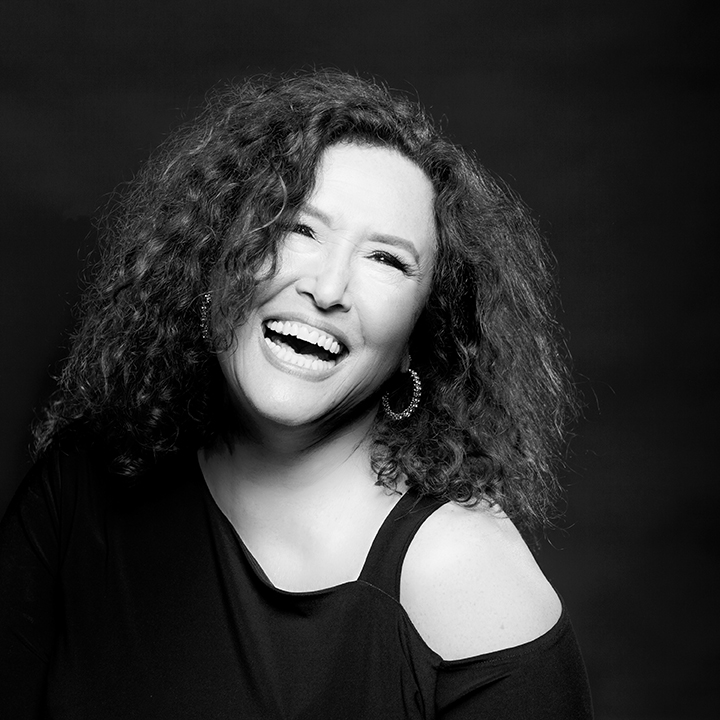
Photo: lenaringstad.com


